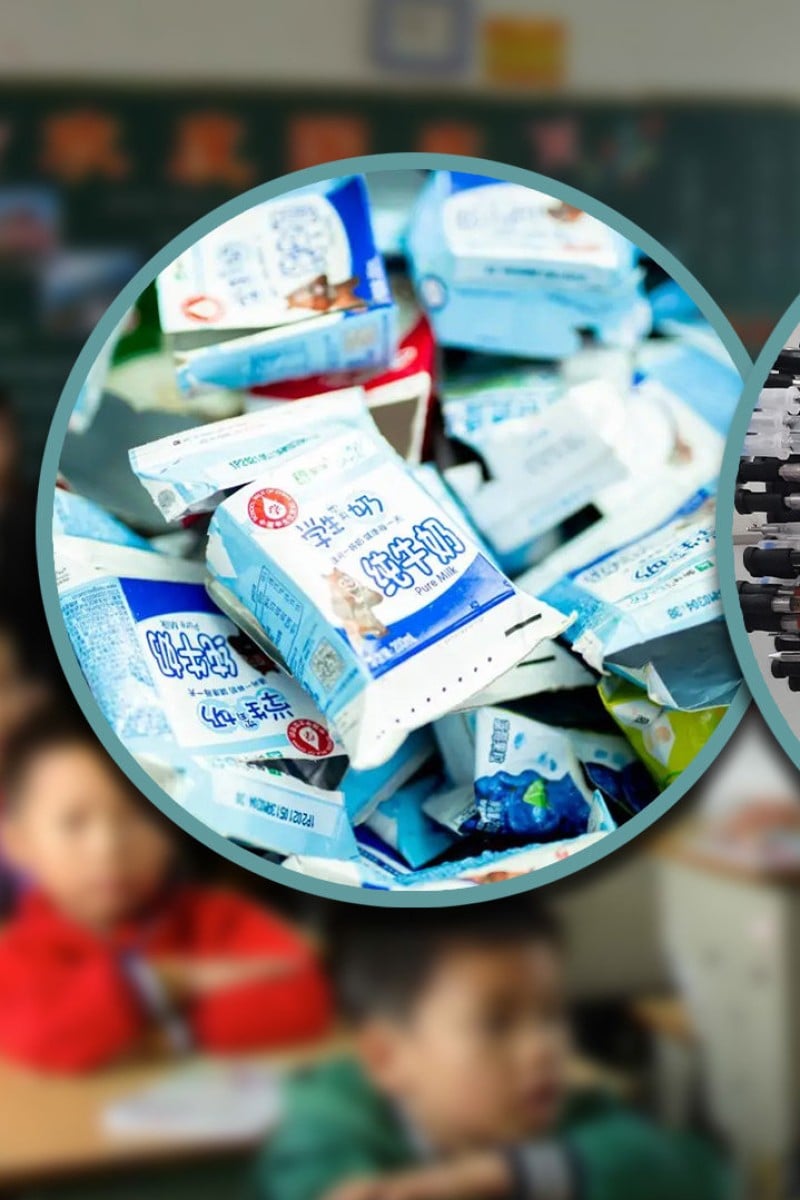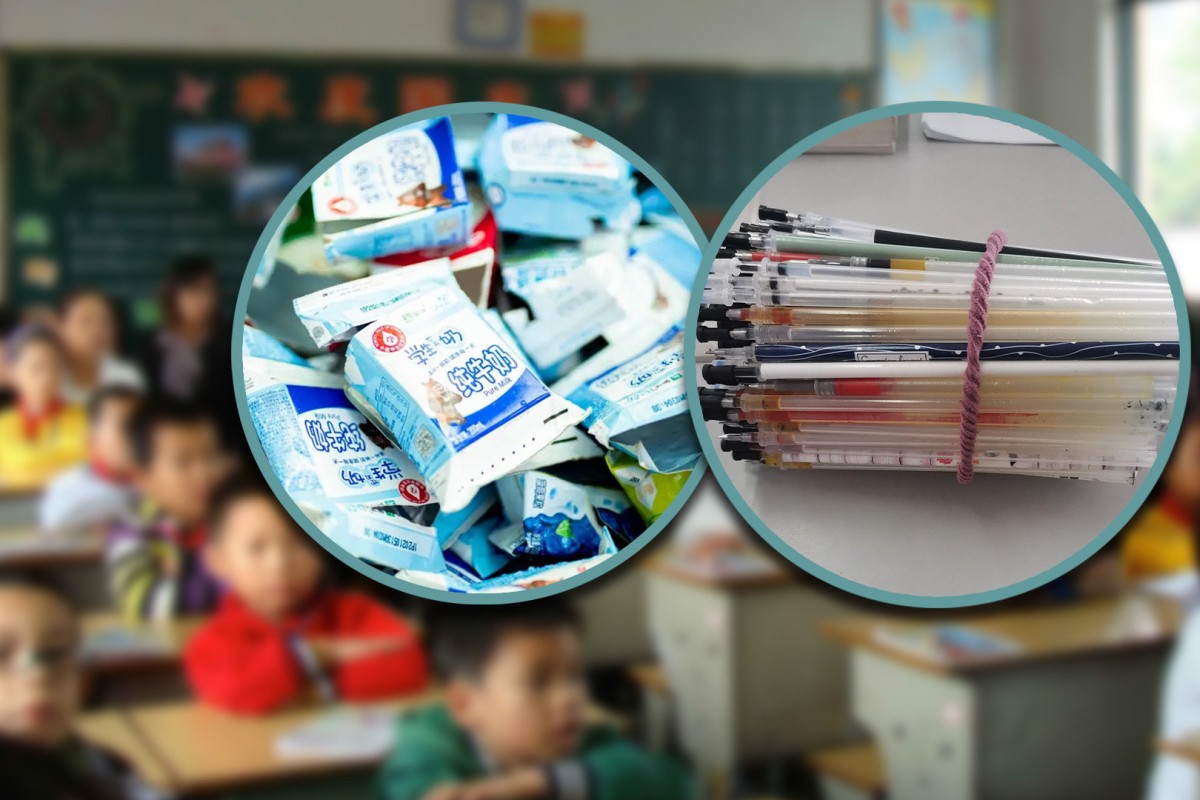
The Lens: Milk carton school assignment in China creates second-hand market for boxes
Some students are required to bring empty Tetra Pak boxes back to school as part of a lesson in recycling and environmental awareness
 A thriving second-hand market in empty milk cartons has emerged in China after some schools asked their pupils to return the containers. Photo: SCMP composite/Sohu/The Paper
A thriving second-hand market in empty milk cartons has emerged in China after some schools asked their pupils to return the containers. Photo: SCMP composite/Sohu/The Paper
Do you have thoughts on this assignment to bring milk cartons to school?
Read more about this issue and send us your response by filling out this form or emailing yp@scmp.com by September 3 at 12pm. We’ll publish the best response in our next issue.
Read and observe
A move by some primary schools in China requiring pupils to hand in empty milk cartons has created a thriving second-hand market for the containers.
People are selling empty Tetra Pak milk boxes for around 0.3 yuan (HK$0.33) each on a second-hand e-commerce platform.
The move initially sparked curiosity until some parents revealed that their children’s primary schools created the market. Students are required to submit empty milk boxes as homework. The goal of the task is to cultivate an awareness of environmental protection.
A primary school in eastern China’s Zhejiang province even set up a competition. Those who submitted the most milk boxes won a free tour of a recycling factory.
Posts by parents on social media said they had to “crazily drink milk” to finish their children’s unusual homework.
A 24-year-old woman from eastern China’s Zhejiang province recalled that her school had a milk carton return scheme when she was young. The school would sell the empty containers and use the money to help poor children.
One mother, surnamed He, told Beijing Youth Daily she needed to submit 60 milk boxes for her two children every month. The second-hand market was a “relief” for her before she started the business herself.
Microplastics are all around us, but how harmful are they?
She said she collected empty milk boxes from cleaners in her residential area and could sell up to 20,000 per month during the summer holidays.
Some criticised the schools for taking this approach, which did not consider the circumstances of individual pupils.
Meanwhile, some schools that distribute free boxes of milk to students daily require the cartons to be handed in on the same day to ensure that the pupil actually consumes the beverage.
One social media user said that in poor areas where milk is distributed to the students of families who cannot afford it, pupils are asked to give back the empty boxes to make sure their parents do not give their milk to their male siblings.
Staff writer
Research and discuss
-
Is this milk carton scheme an effective way to teach students about sustainability? If not, how can the scheme be altered?
-
What are some pros and cons of the scheme?